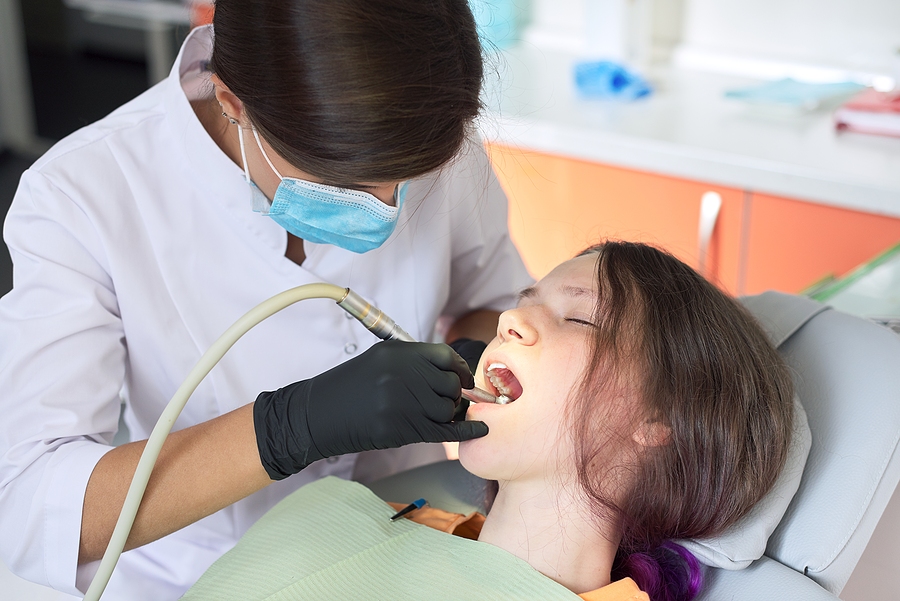Your smile is one of your greatest assets, but what happens when it’s at risk? Gum disease affects millions of people, often without them even realizing it. It can start as a minor irritation and quickly escalate into something far more serious. Understanding the early warning signs is crucial for maintaining healthy gums and teeth. Whether you live in Denver, NC, or beyond, knowing how to spot gum disease could save you from future dental woes. Let’s dive into what gum disease really is and how you can protect yourself against its effects.
What is Gum Disease?
Gum disease, also known as periodontal disease, is an infection of the tissues that surround and support your teeth. It begins with plaque buildup on the teeth—a sticky film of bacteria that forms continuously.
If not removed through regular brushing and flossing, this plaque can harden into tartar. Tartar irritates the gums, leading to inflammation and bleeding—this early stage is called gingivitis.
Left untreated, gum disease can progress to periodontitis. At this stage, the inflammation spreads deeper into supporting structures, potentially resulting in tooth loss and other serious health issues.
The condition is often painless in its early stages; hence, many people remain unaware until significant damage occurs. Recognizing what gum disease entails is essential for proactive dental care and maintaining a healthy smile.
Common Causes of Gum Disease
- Gum disease often stems from a variety of factors, with poor oral hygiene being the most prevalent cause. Neglecting regular brushing and flossing can lead to plaque buildup. This sticky film is filled with bacteria that irritate gums and initiate inflammation.
- Tobacco use is another significant contributor. Smokers are at a higher risk for gum issues due to reduced blood flow in the gums, making healing more difficult.
- Hormonal changes can also play a role. Women may experience increased sensitivity during periods of pregnancy, heightening their susceptibility to gingivitis.
- Certain medical conditions like diabetes affect how your body responds to infections, including gum infections. Medications that reduce saliva flow can further complicate matters by allowing bacteria to thrive unchecked.
- Genetics shouldn't be overlooked either; some individuals may simply be more prone to developing gum disease than others based on their family history.
Risk Factors for Developing Gum Disease
- Certain factors can increase the likelihood of developing gum disease. Understanding these risk factors is crucial for maintaining oral health.
- Age plays a significant role. As people get older, their gums may naturally recede and become more susceptible to infection.
- Tobacco use is another major contributor. Smoking or chewing tobacco weakens your immune system, making it harder for your body to fight off gum infections.
- Hormonal changes can also affect gum health, especially in women during pregnancy or menopause. These changes make gums more sensitive and prone to inflammation.
- Poor nutrition can weaken the body's defenses against infections as well. A lack of essential vitamins like vitamin C increases vulnerability to gum issues.
- Additionally, chronic conditions such as diabetes exacerbate the risk by impairing blood flow and reducing healing capacity in the mouth. Regular visits for cleanings in Denver, NC, are vital for managing these risks effectively.
Symptoms of Gum Disease
Gum disease often sneaks up on you without warning. Early symptoms can be subtle but are crucial to recognize.
- One of the first signs is persistent bad breath that doesn’t go away, no matter how often you brush or rinse. This could indicate bacteria lurking beneath your gums.
- You might notice your gums bleeding when you floss or brush. This isn’t normal and should raise red flags about your gum health.
- Another symptom is swollen or tender gums that feel painful to touch. If they appear reddish instead of a healthy pink, it’s time to pay attention.
- If your teeth begin feeling loose or shift position in your mouth, this signifies advanced gum disease. Ignoring these signals can lead to more significant dental issues down the line.
When to See a Periodontist?
If you notice persistent bad breath despite good oral hygiene, it could be a sign of gum disease. This issue warrants a visit to the periodontist.
Another red flag is bleeding gums during brushing or flossing. Healthy gums should not bleed easily; this symptom indicates an underlying problem that needs professional attention.
Sensitivity in your gums or teeth can also signal trouble. If you experience discomfort while eating certain foods, don’t ignore it.
If your teeth appear loose or shift positions, it's crucial to seek help immediately. These changes often stem from weakened supporting structures due to gum disease.
Don't wait for symptoms to worsen before getting expert advice on your dental health. Regular assessments can make all the difference in maintaining healthy gums and preventing severe complications later on. Contact us to learn more.
Treatment Options for Gum Disease
- Treatment for gum disease varies based on its severity. For early-stage gingivitis, professional cleanings in Denver, NC, may be all that’s necessary to remove plaque and tartar buildup. Regular visits to the dentist can help keep your gums healthy.
- As the condition progresses into more advanced stages, scaling and root planing become essential. This deep-cleaning procedure removes bacteria from below the gum line and smooths out rough spots on teeth roots.
- For cases of severe periodontitis, surgical options might be required. Flap surgery allows access to deep pockets around teeth for thorough cleaning. Bone grafts can also restore lost tissue and support.
- Additionally, antimicrobial treatments or laser therapy could be recommended to combat infection effectively. Each treatment is tailored to individual needs while focusing on restoring periodontal health efficiently.
How to Prevent Gum Disease
Preventing gum disease starts with a solid oral hygiene routine. Brush your teeth at least twice a day with fluoride toothpaste. Don’t rush; take your time to reach every corner of your mouth.
Floss daily to remove plaque and debris between teeth where a toothbrush can’t reach. This simple step can make a significant difference in maintaining healthy gums.
Regular dental visits are crucial. Professional cleanings in Denver, NC, help eliminate tartar buildup that brushing alone can't address. Your dentist or periodontist will keep an eye on any early signs of gum problems.
Eating a balanced diet also plays an essential role. Foods rich in vitamins C and D support gum health, while sugary snacks can lead to plaque formation.
Stay hydrated by drinking plenty of water throughout the day. It helps wash away food particles and bacteria that contribute to gum issues.
Conclusion
Gum disease can sneak up on anyone. Recognizing the signs early is crucial for maintaining oral health. Regular visits to a periodontist are essential if you notice any symptoms or risk factors associated with gum disease.
Preventive measures, such as routine cleanings in Denver, NC, play a vital role in keeping your gums healthy. Good dental hygiene practices at home and professional cleanings ensure that plaque does not turn into tartar and lead to more serious issues.
If you're experiencing any of the warning signs mentioned above or have concerns about your gum health, don’t hesitate to take action. Prioritizing your dental care today can protect your smile for years to come. Invest time in understanding this condition and seek help when needed; after all, healthy gums contribute significantly to overall well-being.
To find out more about the dental services offered at West Lake Dental Care, call 704-483-1870 or schedule an online consultation. You can also visit us at 298 N. Hwy 16 Suite E, Denver, NC 28037.
More Blog Posts
Office Hours
MON9:00 am - 5:00 pm
TUE - WED7:00 am - 3:00 pm
THU7:00 am - 2:00 pm
FRI - SUNClosed









